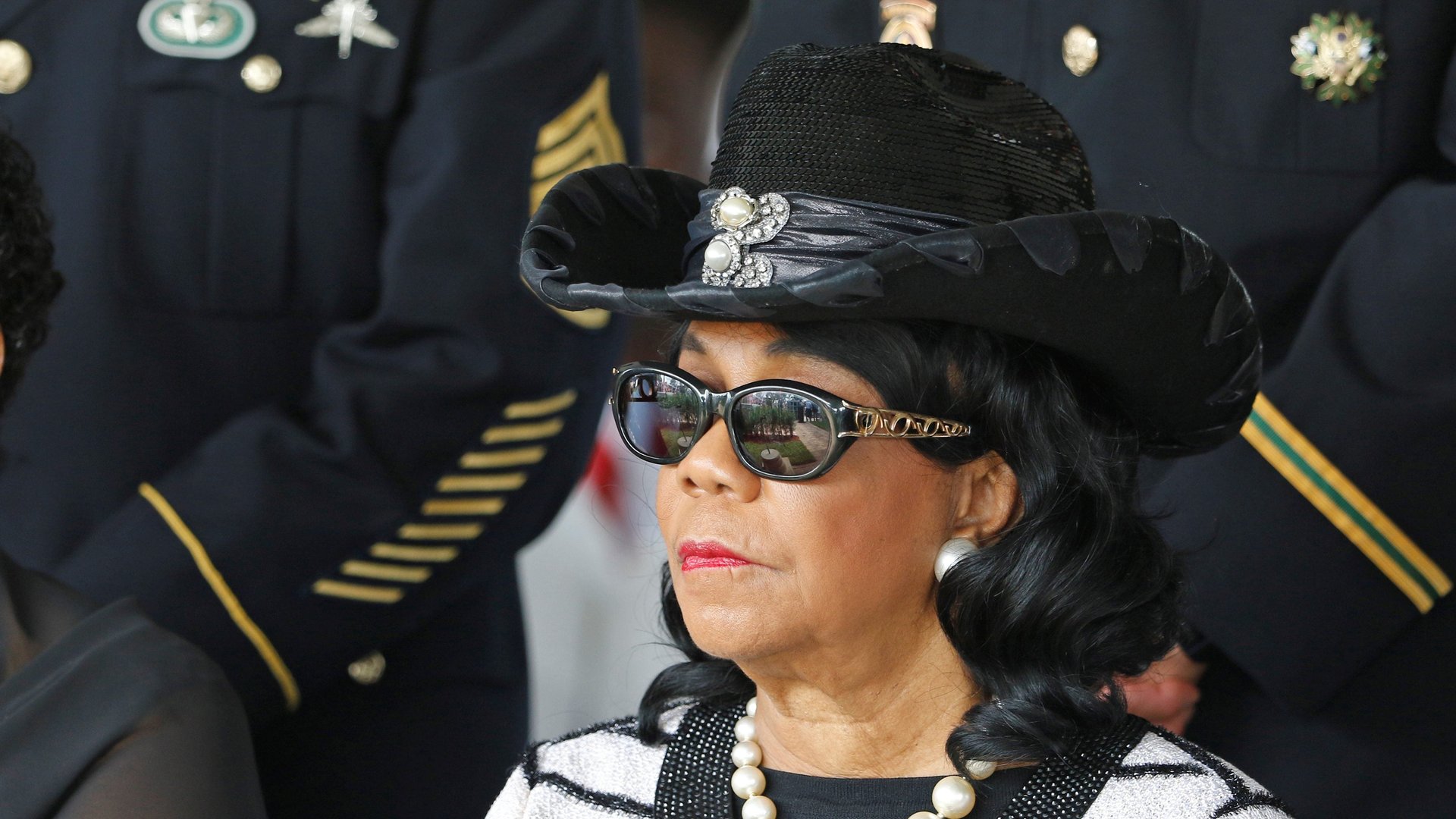The dangerous way the Trump administration talks about black women
Donald Trump is well known for insulting people who criticize him. But African-American women who challenge the president and his administration are both more likely to be singled out for spite and likely to face a wave of racially-tinged insults and threats from the extremists among Trump’s fan base.


Donald Trump is well known for insulting people who criticize him. But African-American women who challenge the president and his administration are both more likely to be singled out for spite and likely to face a wave of racially-tinged insults and threats from the extremists among Trump’s fan base.
The administration’s latest target is Myeshia Johnson, the pregnant widow of an army sergeant killed in Niger this month. After she appeared on Good Morning America this morning (Oct. 23) to confirm earlier reports that the president had seemed unsympathetic and forgotten her husband’s name during a condolence call, Trump quickly implied that she had been lying:
The trolls have been unleashed: Joe Walsh, a pro-Trump former Illinois Congressman said soon afterward that because Johnson had criticized the president, “we have a right to attack her.” Johnson is an “opportunist” who is being “paid to degrade her husband,” social media users claiming to be Trump fans now claim.
Frederica Wilson, the African American congresswoman from Florida who made the details of Trump’s phone call with Johnson public last week, has also faced the ire of the administration. On Oct. 19, White House chief of staff John Kelly called Wilson, 74, an “empty barrel.” He also accused her of having taken credit for getting funding for an FBI building in Florida during a 2015 speech—a false accusation, as video of Wilson’s speech shows. White House spokeswoman Sarah Sanders repeated the “empty barrel” phrase in a press conference; former Sheriff David Clarke, a spokesman for a pro-Trump political committee, called Wilson a “buffoon;” and Trump himself has called her “wacky” three times on Twitter.
Trump has used similar language about critics who are not black women: He called New York Times columnist Maureen Dowd “wacky,” TV show host Mika Brzezinski ”crazy” and “dumb as a rock,” and her co-host Joe Scarborough “psycho.” He’s also called Chris Cuomo, the CNN anchor, a “chained lunatic” and CNN’s Don Lemon “the dumbest person in broadcasting,” insulted a senator’s height, and accused Jeff Bezos, the owner of the Washington Post, of using the paper as a “tax shelter.” (This is, however, the first time he’s insulted a recently-widowed military wife.)
Trump using his perch as president and the resources of the White House to target black women is particularly chilling because the consequences include a barrage of threats and abuse from Trump’s far-right supporters.
During the presidential campaign, one of the underlings of Trump adviser Steven Bannon led a deliberate campaign of hate against Leslie Jones, a black actor, that drove her from Twitter. Since the White House criticized Wilson, her office has been overwhelmed with threatening phone calls and one man in Illinois was visited by police after he said on Facebook he was looking for “ten good men to help carry out a lynching.” Pro-Trump discussion groups are mocking her, and now Johnson.
Other African American women singled out by Trump include ESPN anchor Jemele Hill. After she called Trump a “white supremacist” on Twitter, he said she was the reason ESPN’s ratings were slipping. Sanders, from the White House press room, said Hill should be fired, and Trump supporters took to social media to harass her. (Hill was suspended for two weeks).
Maxine Waters, a black congresswoman from California, has been calling for Trump’s impeachment since he took office, and has faced a host of threats as a result. She recently asked the House Financial Services Subcommittee how Congress should deal with the “the KKK, the white nationalists, the extremists, the alt-right.” “If you look at the YouTube, you see how much they want to kill me and others,” she said.
Many white men who have criticized Trump don’t get the same backlash. The president has never tweeted about author Stephen King, who has publicly called him everything from “an idiot” to a “fake president.” Minnesota senator Al Franken regularly questions Trump’s mental health, his fitness for office, and calls him a liar—but Trump also has never responded on Twitter.
Billionaire Tom Steyer recently started a multi-million dollar ad campaign calling for Trump’s impeachment. So far, Trump and the White House haven’t said a thing.